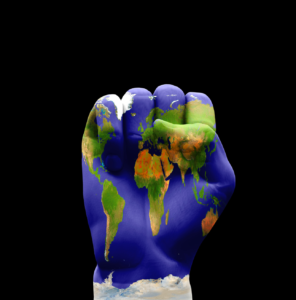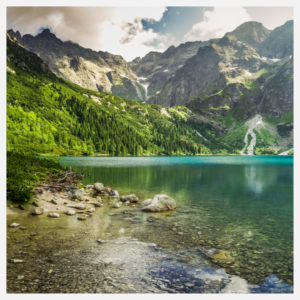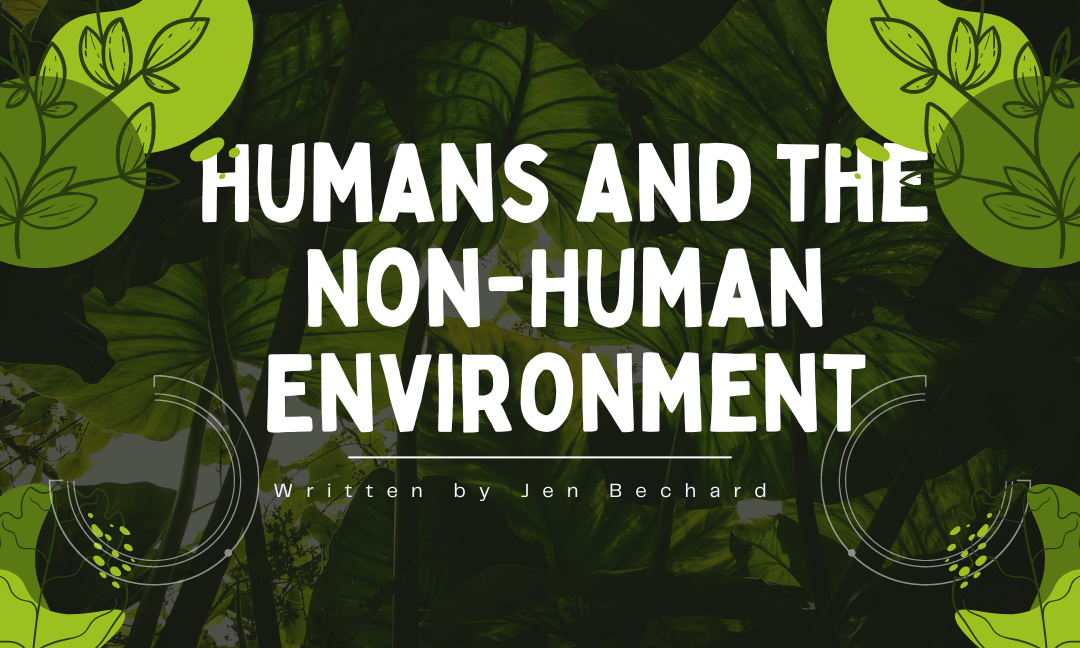Written By: Jen Bechard
Edited By: Morgan Pankarican
Designed By: Cece Ndiwa
Published By: Linda Qi
Among the major themes of the Youth in Food Systems blog are environmentalism and biodiversity. While it may seem obvious that the preservation of nature is ‘naturally’ an ideal to which we all should aspire, many ideas have remained unexplored related to the preservation of nature. So far on the blog, questions such as “what is currently the dominant attitude of humanity toward our relationship with nature,” “does this attitude need to change,” and “what role does an environmental ideology play in this change?” have not been addressed.

These are the questions that I will explore in this article as I examine the relationship between humanity and our general perception that we are “above” or “better than” nature. I believe that answering these questions is necessary to make possible any attempt at furthering the environmentalist ideology which, if taken up by many, can help preserve biodiversity and protect our food systems.
Historically, humans have learned to see ourselves as something “other” than nature. We characterize ourselves as “above” it and view the natural world (plants, animals, rivers, forests) as mere resources. Under this conception, anything in the world that is non-human is seen as less-than-human; it is simply something that we may choose to control, change, consume, or destroy in order to progress human society. For example, someone may look at a river, a flourishing ecosystem upon which a diverse array of plants, animals, fish, and insects depend, and instead of seeing the river as such an ecosystem they will see it as a potential means for human travel and exploitation. Viewing the river this way recontextualizes it as a human resource rather than a part of the natural environment. In the long run, this only harms the river ecosystem as humans begin driving boats across the river and engaging in other activities that may pollute it.
The view that I have described so far is known as “human exceptionalism,” in which humans come to think of ourselves at the “top of the food chain” rather than being just one part in a wider web within the environments in which we live. This ideology has been dominant in Western thought for centuries, and has shaped the way that many of us interact with the natural world. It has led to nature being seen as expendable, and therefore has worked to justify our pollution of the air, land, and seas and contribution to global warming. I believe that the attitude of human exceptionalism is the main driving force behind our current environmental crisis and destruction of the natural environment. Therefore, if we are to have any hope of preserving the environment and creating a sustainable society, we must break down the human exceptionalist ideology.


The question remains: How do we do this? How can we reshape our thinking to decentralize humanity, and to instead get a more holistic understanding of our place within nature rather than above it?
I believe that this is where environmentalism comes into play, an ideology which I think the Youth in Food Systems blog does a wonderful job of curating and which is necessary to our preservation of biodiversity, the flourishing of natural ecosystems, and the sustainability of our food systems in general. Think back to my example of the river; if, as I suggested, the river is polluted by humans as we use it to travel with boats, then this river’s place in our food system is destroyed. We can no longer get fish from it, nor use the surrounding land for our crops. Therefore, we must think of the river not as an object which exists beneath humans and exists to be used by us, but rather as something that exists alongside us humans. That is, we must recognize that humans, the river, the fish, the land, and the air are all part of the same whole. This is the idea underlying environmentalism and is necessary to combat the climate crisis in which we find ourselves. The ideological shift toward wholeness rather than dominance, I believe, is the key to preserving biodiversity, food systems, and consequently, nature and humanity’s place in it.

